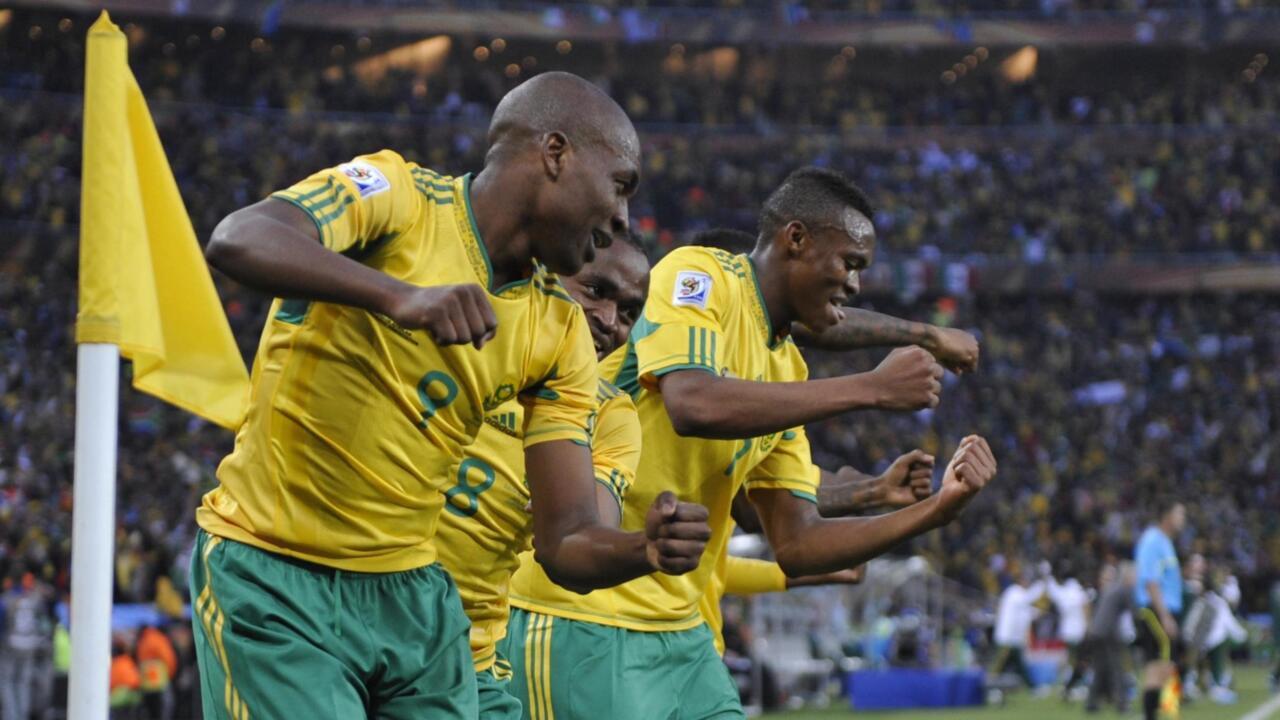Foot: ten years ago, (South) Africa hosted the World Cup
Text by: David Kalfa Follow
On June 11, 2010, South Africa and Mexico meet in the opening match of the first World Cup organized on African soil. This World Cup has become a legend in football, although its attribution to the country of Nelson Mandela was the subject of corruption accusations in 2015.
Publicity
Read moreThe 19th Football World Cup will be forever in the history of football and of sport in general. It is obviously not because of the average number of goals scored per match [1] . Nor because of the very uneven quality of play during this edition organized from June 11 to July 11, 2010.
What makes this 2010 World Cup so special is obviously that it was the first very large sporting event to take place on African soil.
The turning point of the year 2000
This is partly due to a decision made ten years earlier. The International Football Federation ( Fifa ) then laid the foundations for a rotation between the continents to host the final phase [2] .
On July 6, 2000, after a controversial election, Germany edged South Africa very little (12 votes to 11) to organize the 2006 World Cup. The Oceanian delegate, who was instructed to vote in favor of the South African candidacy, abstained. Surprise.
Anger and controversy ensued. A few weeks later, Fifa evokes an idea: the six confederations will now host the tournament in turn, in order to avoid possible arrangements when designating the host country.
The stiff competition from Morocco
In July 2001, Fifa offered the 2010 World Cup to Africa. It remains to be seen where it will be played exactly. Several nations are applying. Some, like Nigeria or the Tunisia-Libya duo, throw in the towel along the way.
Only South Africans, Moroccans and Egyptians are still in the running. Egypt, which is showing up for the first time, carried out a timid campaign. Quite the opposite of a well-established Morocco, which is in its fourth attempt, after the failures of 1994, 1998 and 2006.
On May 15, 2004, after a single round, South Africa however took the upper hand over its Maghreb rival, 14 to 10 (the Egyptian candidacy did not collect any votes). Former President Nelson Mandela is said to have weighed his prestige in the balance. In 2015, it will nevertheless be a cold shower: American justice will indeed affirm that corruption has largely helped South Africa to beat Morocco. As it also tipped the scales in favor of Germany for 2006…
A titanic site
In the meantime, in 2004, it was an explosion of joy and immense pride for the “rainbow nation”. It certainly already housed the Rugby World Cup in 1995. But nothing comparable to a football World Cup.
In fact, the future organizer finds himself in front of huge construction sites. Compared to most of its predecessors, South Africa is not a football country. A bit like the United States (World Cup 1994) and the Japan-South Korea duo (World Cup 2002). In addition, South Africans do not have all the stadiums required. Half of the ten enclosures must be built. There is also a need to renovate and build transport and accommodation infrastructure. Finally, controlling violence and crime - chronic ailments - during the tournament is a real challenge.
But Fifa and South Africa are working together. And the 2009 Confederations Cup, a sort of rehearsal before the 2010 World Cup, is crowned with success. It is a reassuring signal. Only a strike on the construction sites of certain stadiums, decreed in July 2009, made the organizers shiver.
June 11, 2010, a memorable date
On June 11, 2010, almost everything is ready at the Soccer City Stadium in Johannesburg for the opening ceremony. The day before, Colombian singer Shakira began the festivities with her hit tube, Waka Waka .
On the lawn, striker Siphiwe Tshabalala launches hostilities with a missile in the skylight of the Mexican goalkeeper for the first match of the 2010 World Cup. An explosion of joy in the stands where the vuvuzelas, these strident trumpets are out. The party can begin.
[1] 2.27: the second weakest in a World Cup, after that of 1990.
[2] A principle since abandoned by FIFA.
Newsletter Receive all international news directly in your mailbox
I subscribeFollow all international news by downloading the RFI application
google-play-badge_FR- Soccer
- 2010 world cup
- Fifa
- Sports
- South Africa

